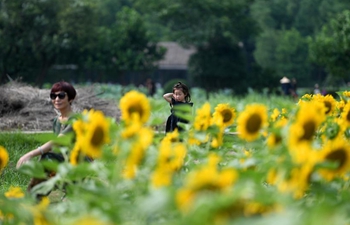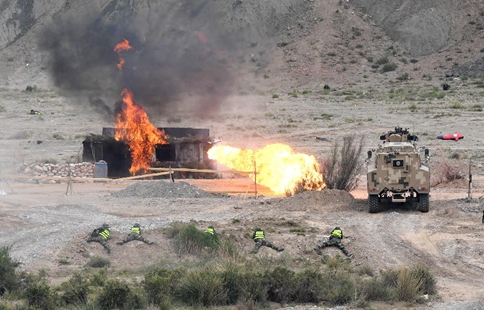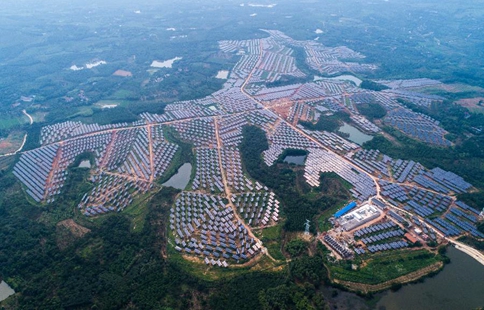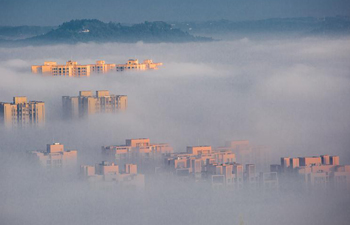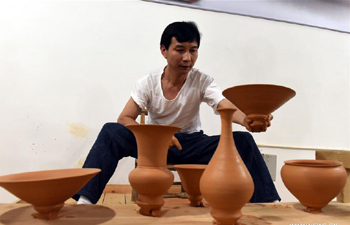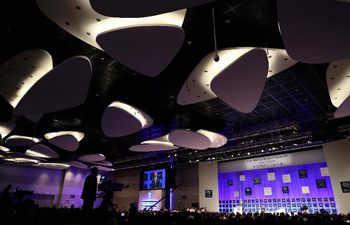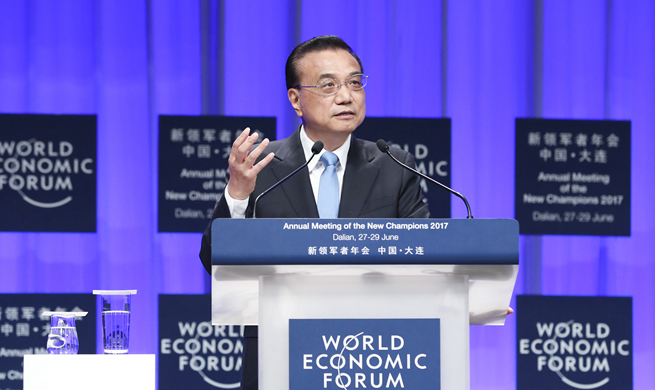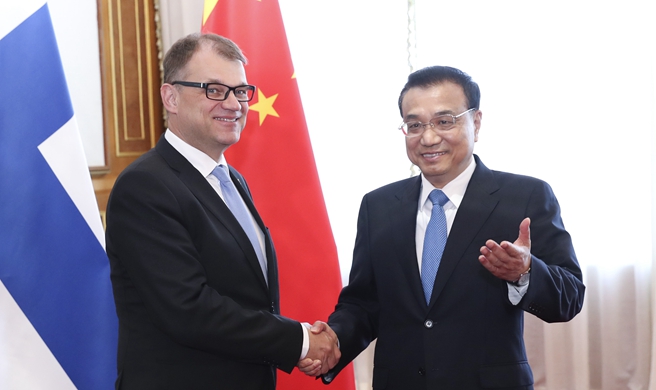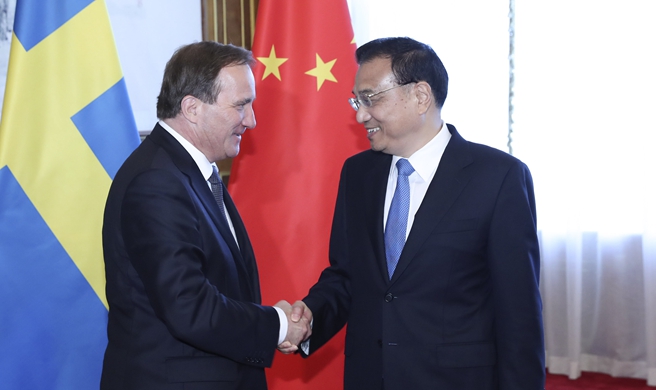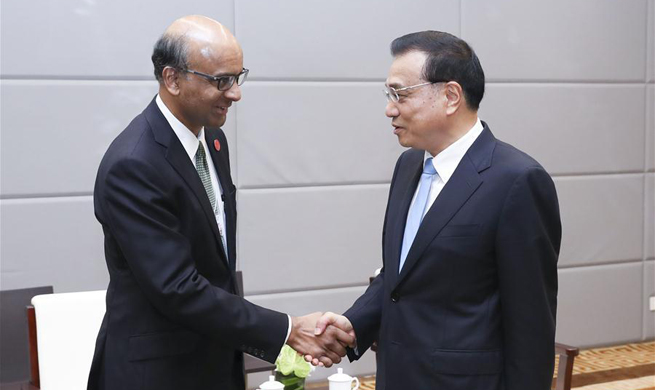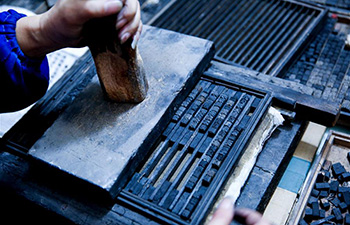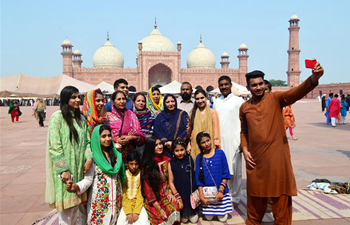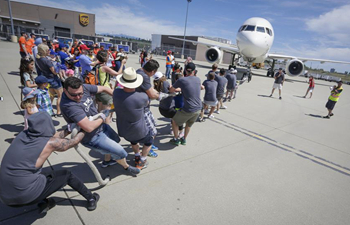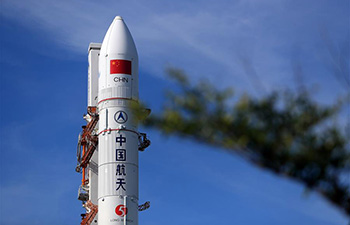UNITED NATIONS, June 27 (Xinhua) -- In the leading up to the next round of talks on Syria, UN Special Envoy Staffan de Mistura on Tuesday described to members of the UN Security Council a "mixed picture," but one in which he hoped to see direct, accelerated talks between government and opposition representatives.
Two sets of talks are expected to get underway next month, the seventh round of the de Mistura-led, comprehensive Geneva "intra-Syrian talks" on July 10-14 seeking an overall political settlement to the conflict, now in its seventh year, and the talks in Astana, Kazakhstan, aimed at "de-escalation" and cessation of hostilities in support of the Geneva Process.
"As usual in Syria we have a mixed picture," said de Mistura, who added there had been "some interesting technical steps" and "currently serious efforts on the other hand underway to deliver further agreements and implementation agreements regarding the de-escalation zones."
"The UN has been quite active, convening joint technical meetings with opposition experts, seeking to support the efforts of the Astana guarantors on de-escalation, consulting widely including in Moscow and Paris and with many others, and laying the basis for a new round of the Geneva talks -- and also having consultations with our colleagues in the European Union," he said.
Recalling establishment of a "technical consultative process" during the last round of Geneva talks, the envoy said he believed the additional layer "can be very helpful in actually abolishing layers by accelerating the real talks."
He believes the tech talks are meant to develop relevant options on constitutional and legal issues that "would need to be considered anyway and resolved anyway in relation to any proposals and position put forward in formal sessions," thus helping the formal talks "to progress more expeditiously."
It would ensure that in the formal talks any negotiated transitional political process would enjoy "solid technical constitutional and legal foundations," de Mistura said, adding that it was non-binding and not meant to infringe on the Syrian people's right to write their own constitution.
Saying he urged participants he invited to the next Geneva talks to "prepare actively," the special envoy said he looked forward to them "engaging in an intensified set of discussions on issues across all four baskets - governance issues, constitutional issues, electoral issues, counter-terrorism, security governance and medium term confidence-building issues. I hope it will be possible to accelerate the peace talks."
"I am giving consideration to sharing some of my own thinking on certain issues in order to stimulate the parties," he said. "If the environment is propitious, I am also ready to seek to facilitate direct talks between the government and the opposition, hopefully unified opposition, in those talks, either at the formal or technical level. This is something that all sides have stated more than once they want, and I hope conditions are being created that could enable this."
While he saw "a good general trend" on the diplomatic side, "it is not a good trend everywhere," de Mistura said. "In some areas, the fight and violence has been continuing and in fact intensified."
"The overall significant improvement of the security situation on the other hand has not, and we have to recognize that, regrettably, yielded equally significant progress on humanitarian access to areas where the needs are the greatest," he said. "Much more needs to be done -- and urgently -- to enable safe, unimpeded and sustained humanitarian access to all Syrians, wherever they are, particularly in the areas which have been difficult to reach."
Before winding up his briefing, de Mistura also underlined the importance the talks address "the issue of detainees, abductees, missing people and on the important issue of humanitarian de-mining.
"The ideal trajectory over the coming two weeks would be: progress in Astana on July 4-5; then a further set of joint technical expert meetings with the opposition groups in the same week; and then a continued discussion and dialogue hopefully among international stakeholders (including at the G20 Summit in Hamburg on July 7-8), in which Syria can not be avoided as a subject," he said, adding he seeks a further round towards the end of August or early September, in advance of the September UN General Assembly meeting.




